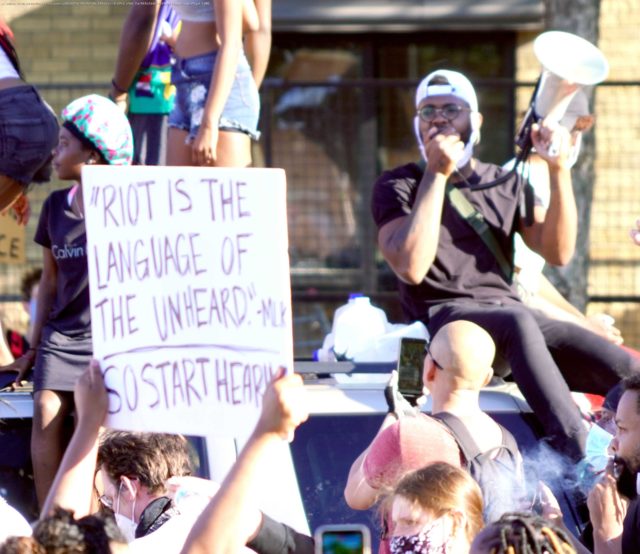Riots erupted in cities across the country this weekend following the death of George Floyd, and the destruction was widely condemned by the president, local …
Riots erupted in cities across the country this weekend following the death of George Floyd, and the destruction was widely condemned by the president, local elected officials and many members of the African American community. («Riots» as defined by dictionaries as «a violent public disorder, specifically: a tumultuous disturbance of the public peace by three or more persons assembled together and acting with a common intent.»)
On social media, users called the arson and looting «disgusting» and «reprehensible.» After a trail of vandalism across downtown Louisville, Kentucky, where EMT Breonna Taylor was fatally shot by police earlier this month, Mayor Greg Fischer said the «violence and destruction is absolutely unacceptable.» President Donald Trump called the protesters in Minneapolis “thugs.”
But historians and sociologists say reflexively condemning the actions as reckless or self-defeating minimizes the extent of people’s rage. Floyd’s death has now become part of an all too familiar pattern of confrontations between police and African Americans who lose their lives over minor offenses. For all the denouncements, there are many who defend riots as the actions of those who have exhausted every other way to be heard.
‘A riot is the language of the unheard’: MLK’s powerful quote resonates amid Floyd protests
«I’m 58 years old now. I don’t remember a year that there wasn’t half a dozen cases, spectacular cases of police violence. You could do a New York Times front page, just like you did of the COVID deaths, and easily get 100,000 names, beginning in 1960, of people who died,» said Robin Kelley, a professor of history at UCLA who studies social movements in the U.
Домой
United States
USA — mix 'Riots,' 'violence,' 'looting': Words matter when talking about race and unrest, experts...






